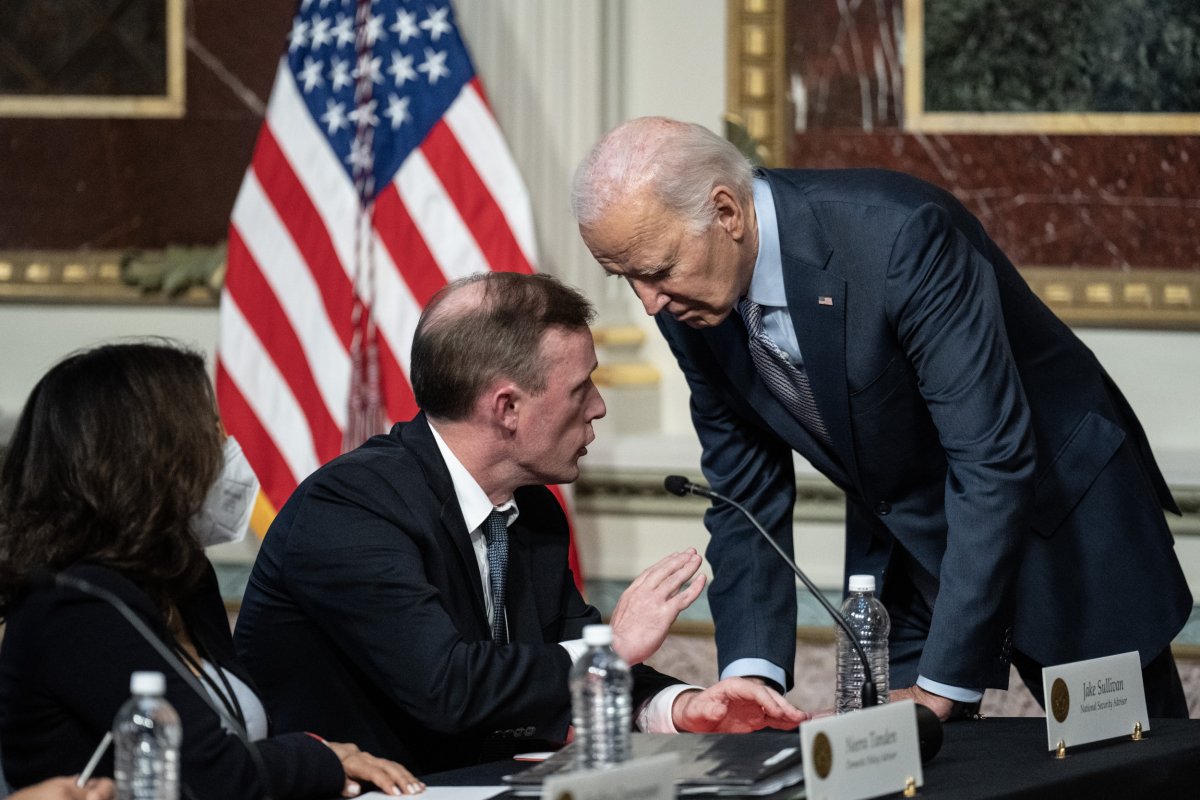Russia has vetoed a draft resolution before the United Nations Security Council banning nuclear weapons in space, spooking the United States.
Moscow on Wednesday blocked the resolution, which was drafted by the U.S. and Japan. It would have reaffirmed the obligation of countries to comply with the 1967 Outer Space Treaty—not to place any objects carrying nuclear weapons or any other kinds of weapons of mass destruction in orbit around the Earth.

Russia's U.N. Ambassador Vasily Nebenzya said the resolution was "absolutely absurd and politicized." Moscow wants "a ban on the placement of weapons of any kind in outer space, not just [weapons of mass destruction]," he added.
The veto came after Washington assessed earlier this year that Moscow is developing a new satellite carrying a nuclear device. In February, Rep. Mike Turner, Republican chair of the U.S. House of Representatives' intelligence committee, issued a cryptic warning, saying his concerns were related to a Russian space-based nuclear weapon that could potentially be used on satellites.
Russian President Vladimir Putin has denied the allegations, saying Moscow has no intention of deploying nuclear weapons in space. Newsweek has contacted Russia's Foreign Ministry for comment by email.
Responding to Russia's veto of the U.N. Security Council Resolution on the Outer Space Treaty, U.S. National Security Advisor Jake Sullivan said Moscow would not have done so if it didn't intend to launch nuclear weapons in space.
"Placement by a State Party of a nuclear weapon in orbit would not only violate the Outer Space Treaty, but would threaten the vital communications, scientific, meteorological, agricultural, commercial, and national security services that any and all satellites provide to societies around the globe," Sullivan said in a statement published by the White House on Wednesday.
"As we have noted previously, the United States assesses that Russia is developing a new satellite carrying a nuclear device," Sullivan added.
He said: "We have heard President Putin say publicly that Russia has no intention of deploying nuclear weapons in space. If that were the case, Russia would not have vetoed this resolution."
Moscow's veto was also denounced by U.S. Ambassador to the U.N. Linda Thomas-Greenfield, who said after the vote: "Today's veto begs the question: Why?"
"Why, if you are following the rules, would you not support a resolution that reaffirms them? What could you possibly be hiding. It's baffling. And it's a shame," she added.
Do you have a tip on a world news story that Newsweek should be covering? Do you have a question about the Russia-Ukraine war? Let us know via worldnews@newsweek.com.
Uncommon Knowledge
Newsweek is committed to challenging conventional wisdom and finding connections in the search for common ground.
Newsweek is committed to challenging conventional wisdom and finding connections in the search for common ground.
About the writer
Isabel van Brugen is a Newsweek Reporter based in Kuala Lumpur. Her focus is reporting on the Russia-Ukraine war. Isabel ... Read more
To read how Newsweek uses AI as a newsroom tool, Click here.








